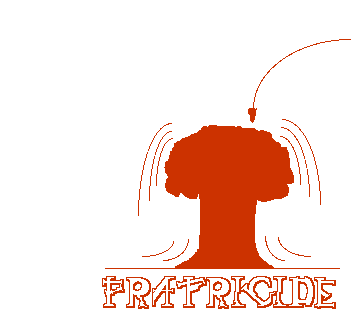August 7, 1995

He was an adroit and successful politician, leader of his party and nation. He had seen the face of war and quite reasonably sought to spare his country any further experience of it. He was a decent man, doing the best he knew. But history has savaged the reputation of Neville Chamberlain, linking his name forever with the craven and dastardly appeasement of a bloody tyrant at Munich, and condemning the late Prime Minister to one of the outer circles of political-historical hell.
Let us hope that, in his dealings with North Korea, Bill Clinton has not purchased a seat next to Chamberlain's.

He who would do good to another must do it in Minute Particulars:
General Good is the plea of the scoundrel, hypocrite, & flatterer...
... William Blake, from "Jerusalem"

"O Zarathustra, here is the great city; here you could find nothing and lose everything... here great thoughts are boiled alive and cooked till they are small."
... Friedrich Nietzsche, from "Thus Spake Zarathustra," tr. W. Kaufmann

Ends and means are not generally separable. The politician who takes bribes may be consciously working for a greater society and improved justice and roads, etc., but through his actions, he is simultaneously working to bring about, or at least perpetuate, a style of government in which politicians take bribes with impunity.

At least half the trouble with censorship (e.g., of the Internet) is that the government officials who carry it out cannot be trusted with this responsibility. Eventually, they will decide to censor anti-Democratic (or anti-Republican) material, and our freedom will be extinguished.

The autopsy theater has become the President's favorite press room, the morgue his chosen venue for the wooing of his constituents. For behold, the dead stand up and speak. Corpses rise and dance to his tune. In a macabre ritual, the bodies of the Oklahoma City bombing victims are transformed into mute spokemen for whatever phantasm of policy the President calls them to support. Like a ghoul, he leads them in his choruses of "We shall overbear" and "The Star-spangled Blindfold." With no hesitation at all, he uses the death of uninvolved innocents and the agony of their relatives to destroy the liberty he so bitterly opposes and yet swore to uphold.
The exercise of free speech, particularly, political speech, is guaranteed not only to his supporters, but to his bitterest and most vitriolic opponents. The only "discipline" that needs to be exercised is that required to remain true to the spirit of the Constitution, and let the dead rest in peace.
The President's immediate purpose is to silence his critics. But his means indicate that he wants much more than that: a nation that is huddled in terror for fear of right-wing fanatics (or whatever bugaboo his people think of next), a people hesitant to criticize their government for fear of being branded with the guilt of whatever the next tragedy is, a society that used to be free but is now in bondage on the altar of Order.
His hypocritical attempt to detach the guilt of the bombing from the people responsible for it and to re-attach that guilt to his rivals invokes divine laughter: our mad-making is almost complete.

Is there anything so small and worthless that a politician will not attempt to steal it, so simple and basic that a politician will not try to twist it to his advantage, or so base and vile that one cannot find a politician doing it?

After a lifetime diet of Heifetz, Milstein, and the other popular violinists of our time, I have become a devotee of the violin playing of Arthur Grumiaux. For the sheer thrill of rediscovering the Mozart violin concerti, I strongly recommend Grumiaux's recordings.

All contents © Copyright 1995, 1996 by Redmon Barbry


